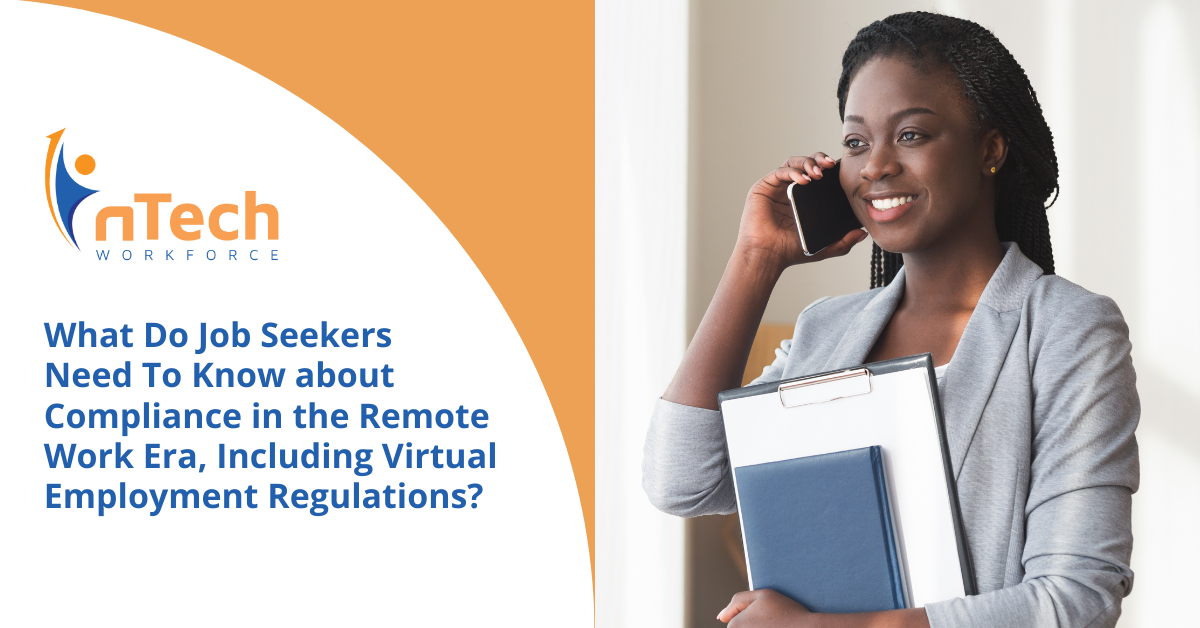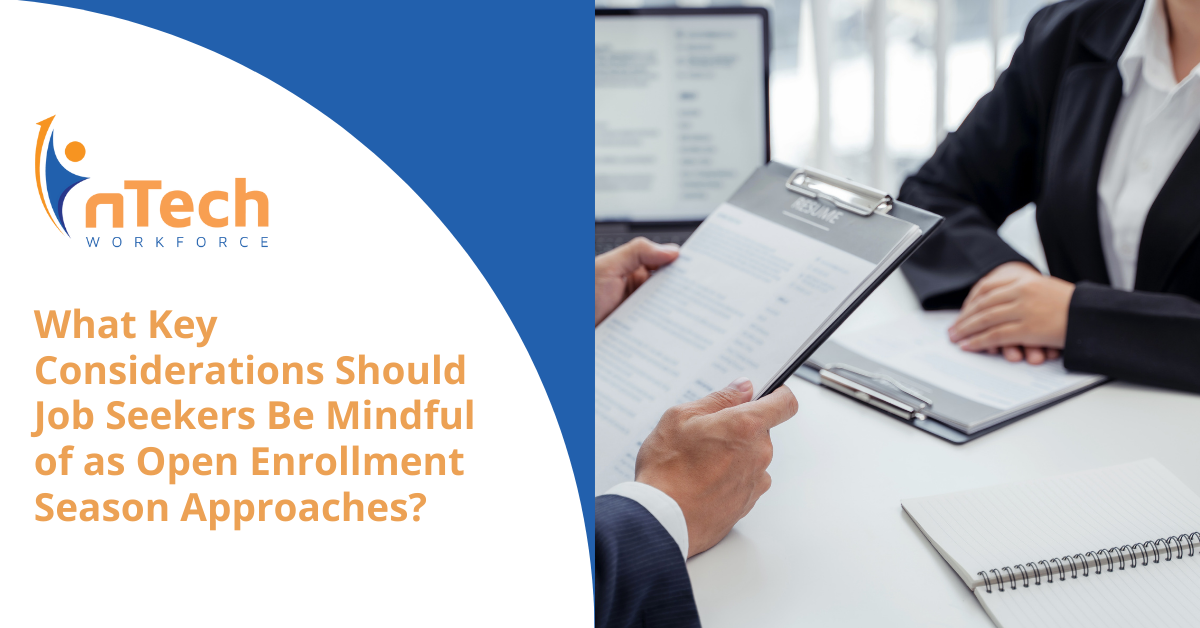What Key Considerations Should Job Seekers Be Mindful of as Open Enrollment Season Approaches?
As defined by an article from Forbes, open enrollment is: “The time of year when you can sign up for health insurance or make changes to your...
-1.png?width=303&height=403&name=Job%20Seekers%20Mega%20Menu%20(1)-1.png)
Check out our nSider Hub for all of nTech's staffing-related resources.
3 min read
![]() nTech Workforce
:
Feb 13, 2024 9:00:00 AM
nTech Workforce
:
Feb 13, 2024 9:00:00 AM

Remote work, with its many advantages, is here to stay. In a time where remote work is becoming increasingly prevalent, job seekers must navigate a complex landscape of legal considerations and virtual employment regulations. According to an article from Medium, a study concluded that: “The key benefits of remote work, as cited by 70% of hiring managers, included a reduction of non-essential meetings, increased schedule flexibility, and the elimination of commuting.”
While remote work is becoming the norm, remote processes and regulations are becoming steadily more necessary. According to a Forbes article: “The process of going remote may seem as simple as sending an employee home with a laptop, but sustainable change management requires more preparation to minimize risk, prevent informational isolation, and ensure sustainability. At the top of the list is compliance.” With insights from Kayla Raynor, Compensation and Compliance Lead at nTech Workforce, this article delves into the crucial aspects of compliance that job seekers should be aware of in this changing work environment.
When considering remote work opportunities, it is paramount to understand various legal aspects. Raynor highlights key areas for attention:
Raynor also emphasizes the importance of legal advice in certain scenarios, stating: “It's advisable to seek legal advice if one has specific concerns or if the remote work arrangement involves international aspects. Additionally, staying informed about changes in labor laws and regulations is crucial for maintaining compliance throughout remote work tenure.”
In a previous edition of nSider, Arthur Ransier, Director of Business Strategy at nTech Workforce, notes that the legal and compliance landscape for hiring is “complex” and “multifaceted” – especially for contingent workers. Ransier also states: “Organizations should engage legal and compliance experts, define clear contracts, and establish transparent processes,” to adopt a proactive and informed approach.
The legal landscape regarding virtual employment is constantly evolving, according to Raynor. She highlights several of these advancements:
Raynor suggests that adopting several policies and practices to ensure compliance with remote work regulations is vital. For example, developing a comprehensive remote work policy is crucial, covering aspects like working hours, communication protocols, equipment use, and data security.
Raynor also recommends that guidelines for maintaining a safe and ergonomic remote workspace should be provided, alongside training on preventing common workplace injuries. Clear communication protocols for remote teams are vital, as are training and education on remote work policies and compliance requirements. Ultimately, Raynor notes that regular compliance audits help maintain alignment with established policies.
An article from HR Future suggests: “Investing in training sessions on effective remote communication can pay dividends. These sessions should cover aspects like digital etiquette, clarity in virtual presentations, and efficient email communication. Another vital practice involves setting clear expectations. Clearly defined goals and transparent performance metrics help remote workers understand what is expected of them, aligning their efforts with the company’s objectives. This clarity is especially important for MSP staffing companies, where remote teams might work on various projects with different clients.”
Taking several steps to verify an employer's commitment to compliance is important. Raynor advises to: “Conduct thorough research on the company’s reputation. Review the company’s remote work policies and any relevant documentation provided during the application process.”
Raynor also suggests using the interview process to inquire about specific policies and practices related to compliance. Additionally, reaching out to current or former employees and assessing the availability of training programs on compliance-related matters are beneficial.
Staying informed about changes in remote work compliance is essential. According to Raynor, available resources include:
In the ever-changing realm of remote work, mastering compliance and virtual employment regulations is vital for both HR managers and job seekers. Armed with expertise from Kayla Raynor, HR managers can build on creating a compliant and efficient remote work infrastructure. Concurrently, job seekers can navigate this environment with increased assurance, securing remote work opportunities that align with legal standards and offer fulfilling professional experiences.

As defined by an article from Forbes, open enrollment is: “The time of year when you can sign up for health insurance or make changes to your...

Starting your recruitment process with a high-quality job description is more important now than ever. As more and more workers are looking for roles...